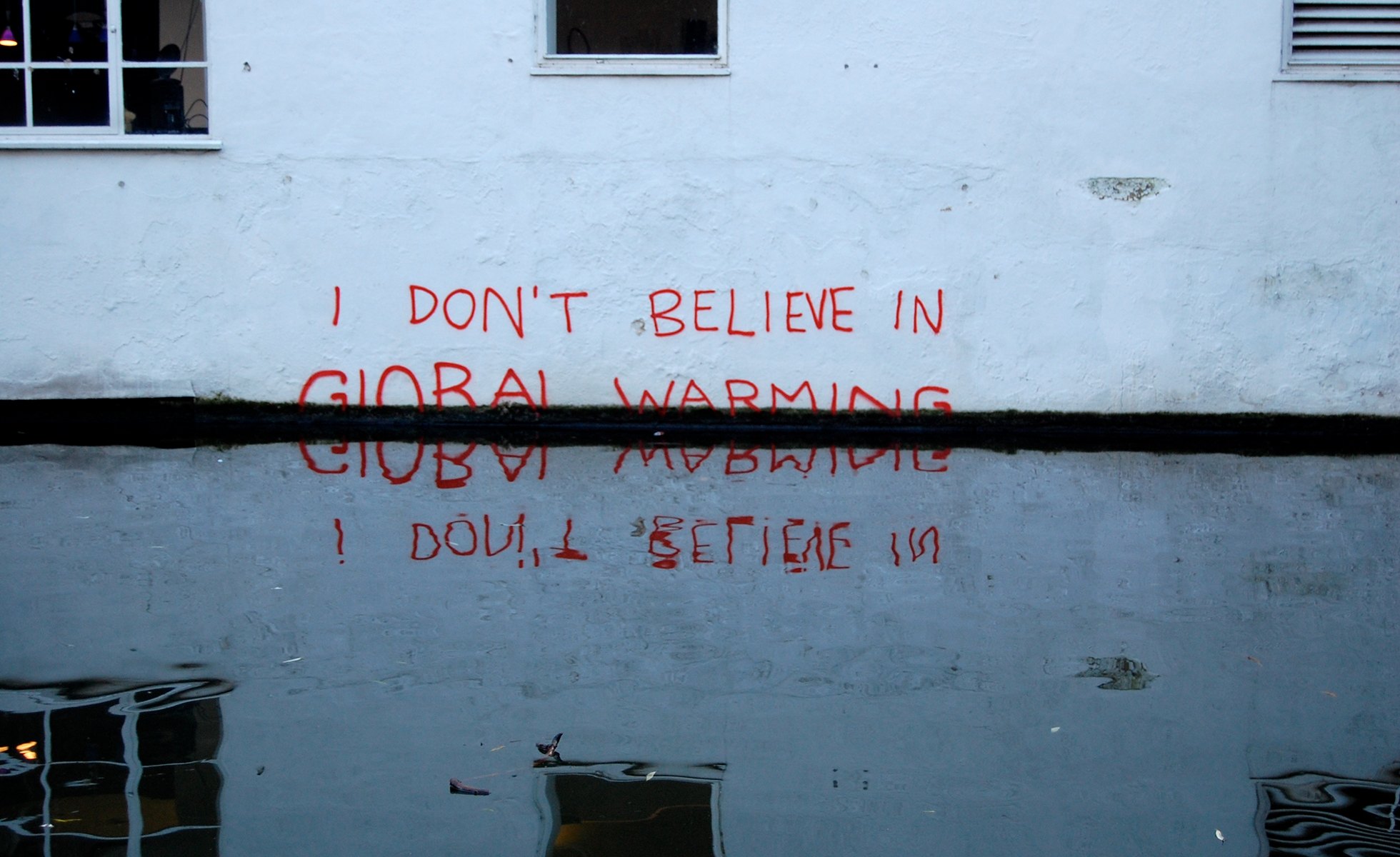The “logic” of climate change deniers and anti-environmentalists is often baffling. Although the person who posted that comment doesn’t appear to claim professional background or knowledge, Canadian anti-environmentalist Patrick Moore — who capitalizes on his science degree and long-ago association with Greenpeace to shill for polluting industries — told the Vancouver Sun in 2011 that oil companies are “leaving the soil cleaner than they found it because they’re removing the oil from it.”
Those who coat their “alternative facts” with a veneer of “expertise” often employ twisted logic. Take a petition letter urging U.S. President Donald Trump to withdraw from the UN Framework Convention on Climate Change.
Letter author Richard Lindzen, a climate skeptic whose work has often been debunked, claims “more than 300 eminent scientists and other qualified individuals from around the world” signed the petition. What kind of “eminent scientists” would sign something claiming carbon dioxide “is not a pollutant but a major benefit to agriculture and other life on Earth” and that “warming from increased atmospheric CO2 will be benign”?
The idea that CO2 is little more than plant food is common in denier circles, floated recently by the U.S. Heartland Institute, its affiliated industry promoters like Canadians Patrick Moore and Tom Harris, and others. In a 2014 book, two signatories to the Trump letter, retired Environment Canada scientist Madhav Khandekar and retired Australian geology professor Cliff Ollier, along with database marketing consultant Arthur Middleton Hughes, wrote the world should burn more coal “to produce electricity and increase CO2 in the atmosphere.” They also argue for more use of the pesticide DDT.
We’ve addressed the debunked CO2 argument before. It ignores pollution from burning coal and other fossil fuels, and the complexity and interconnectedness of natural systems. Many plants do need CO2, but it doesn’t follow that more CO2 is better, or that CO2 is the only factor in plant growth. Studies show rising temperatures often hinder plant growth and nutritional value. And droughts, floods and other increasingly extreme and unpredictable weather events brought on by climate change are not beneficial to agriculture or plant growth. We also need oxygen to live, but too much can be toxic.
So, who are the “300 eminent scientists and other qualified individuals” who put their names to such unscientific nonsense? Like Khandekar, many are affiliated with the industry-funded Heartland Institute, which has promoted tobacco and compared climate scientists to the Unabomber and Charles Manson.
A Desmog Blog investigation described the 300 as “medical doctors, mystery men, coal executives, petroleum engineers, economists, and think tank members. Only a small handful could be considered even remotely ‘qualified’ or ’eminent’ — but not in the field of climate science.” Many show no academic affiliation or address. Canadians are represented by the likes of Khandekar and Moore.
Moore once even claimed glaciers are “dead zones” that we’d be better off without! There’s that twisted logic. It’s true plants don’t grow on glaciers, but microorganisms and other life do. Saying “Ice and frost are the enemies of life” is absurd — especially for those of us who require water to live!
Another signatory, William Happer, is a retired physics professor being eyed as Trump’s science adviser. Greenpeace once caught him in a sting in which he agreed to write an article touting the benefits of coal and to fake its peer-review status.
People posting nonsensical comments on Facebook might simply be uninformed or misinformed. But it’s hard not to conclude that many of the so-called “experts” are being deliberately deceptive. Any scientifically literate person who has examined the massive amounts of evidence for human-caused global warming and its consequences, collected over many decades from around the world, wouldn’t fall for such easily debunked claims.
In this “post-truth” era, with a climate-change-denying U.S. administration, those who want to keep humanity wedded to outdated, polluting technologies have been emboldened. It’s up to the rest of us to cut through the misinformation and help humanity get on track to a cleaner, healthier future.

